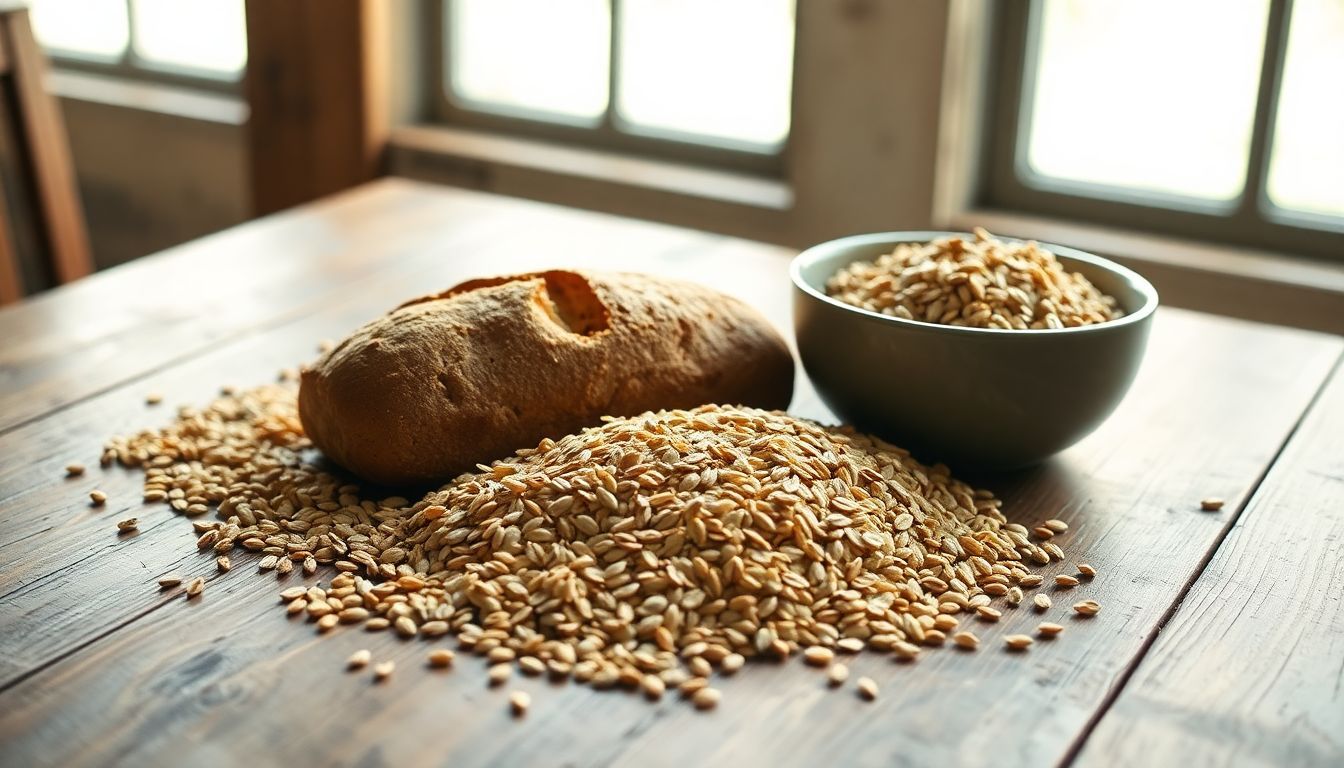Many people struggle to choose foods that support a healthy life. Whole grains, like brown rice or whole grain bread, can help improve health and increase life expectancy. This blog will explain how eating whole grains lowers risks of heart disease, type 2 diabetes, and other chronic diseases.
Thank you for reading this post, don't forget to subscribe!Keep reading to learn the secrets of these powerful foods!
Key Takeaways
- Eating whole grains daily can reduce heart disease death risk by 9% and overall mortality risk by 5%, as per a Harvard study in JAMA Internal Medicine.
- Whole grains, like brown rice, oats, and whole wheat, help lower bad cholesterol, fight inflammation, and manage blood sugar levels to prevent diabetes.
- Studies like the Nurses’ Health Study (1984–2010) link plant-rich diets with longer life spans while replacing red meat with whole grains cuts heart disease death risk by 20%.
- “Blue zones” populations live longer due to diets rich in foods like barley, oats, and brown rice—key examples of healthy eating patterns for longevity.
- Research from BMJ confirms that regular whole grain eaters have lower risks of cancer, diabetes, respiratory diseases, and infections.
The Link Between Whole Grains and Longevity

Eating whole grains like brown rice, whole oats, and whole wheat can boost life expectancy. A Harvard study published in JAMA Internal Medicine found that each daily serving of whole grains lowers death from heart disease by 9% and overall mortality risk by 5%.
These benefits appeared over a span of 25 years. Whole grain bread or cereals are much healthier options than white bread or refined grains.
The Nurses’ Health Study (1984–2010) tracked over 74,000 women, while nearly 44,000 men were part of the Health Professionals Follow-Up Study (1986–2010). Both studies showed clear links between diets rich in plant-based foods and longer lives.
Whole grains play a big role because they help prevent heart diseases and other health problems tied to processed foods.
Next up: Learn more about the many **health benefits** packed into every bite of these nutritional powerhouses!
Health Benefits of Eating Whole Grains
Whole grains can be a game-changer for your health. They are packed with nutrients that support your body and help prevent illness.
- Whole grains help lower the risk of cardiovascular disease. Studies show eating them reduces this risk by 8%.
- They contain fiber, which manages blood sugar levels. This can protect against diabetes.
- Magnesium, vitamin E, and other nutrients in whole grains keep your heart healthy. They also fight inflammation and repair DNA damage.
- These foods lower bad cholesterol while maintaining good cholesterol levels. This keeps arteries clear and healthy.
- Substituting whole grains for red meat can cut heart disease death risk by 20%. Brown rice or whole grain bread are great options here.
- Eating more whole foods like whole grains supports weight loss. Their high fiber content keeps you feeling full longer, reducing calorie intake naturally.
- Research links whole grains to better life expectancy in “blue zones.” Residents there live longer due to a plant-based diet full of nutrient-rich food.
Next up: Let’s explore studies proving how whole grains promote longevity…
Studies Supporting Whole Grains for a Longer Life
Studies confirm that eating whole grains can help you live longer. Below is a summary of key research findings that highlight this connection.
| Study | Key Findings |
|---|---|
| Harvard School of Public Health | Analyzed data from over 118,000 participants for 24–26 years. Found that high whole grain intake was linked to reduced mortality. Among 29,920 deaths, those eating more whole grains had significantly improved outcomes. |
| BMJ Report | Reviewed 45 studies on whole grains. Confirmed lower risks of heart disease, cancer, diabetes, respiratory issues, and infections. Regular whole grain consumers showed better health and reduced disease risks. |
| Circulation Report | Analyzed data from 14 studies with 786,000 participants. Found a 16% lower all-cause mortality risk in people who ate the highest amount of whole grains. |
| Blue Zones Diet Patterns | People in “blue zones” consume diets rich in whole grains like oats, barley, brown rice, and ground corn. These areas are known for higher life expectancy and a focus on plant-based foods. |
Scientific evidence shows the powerful health benefits of whole grains. These studies reveal significant links between whole grain consumption and a longer, healthier life.
Conclusion
Whole grains can play a big role in living longer and healthier. They help protect your heart, lower disease risks, and improve overall health. Swapping refined grains or red meat for whole foods like brown rice or whole grain bread makes a real difference.
A few simple dietary changes could lead to lasting health gains. Start making these small changes today—your body will thank you later!
For further reading on how diet impacts your health, check out this article on why experts are questioning new meat guidelines.
References
- https://www.nbcnews.com/better/diet-fitness/whole-grains-help-you-live-longer-study-finds-n279756
- https://www.health.harvard.edu/staying-healthy/whole-grains-associated-with-longevity-say-harvard-researchers
- https://www.bluezones.com/2016/11/whole-grains-increase-longevity/
- https://www.usarice.com/news-and-events/publications/usa-rice-daily/article/usa-rice-daily/2022/02/15/add-more-years-to-your-life-with-whole-grains (2022-02-15)
